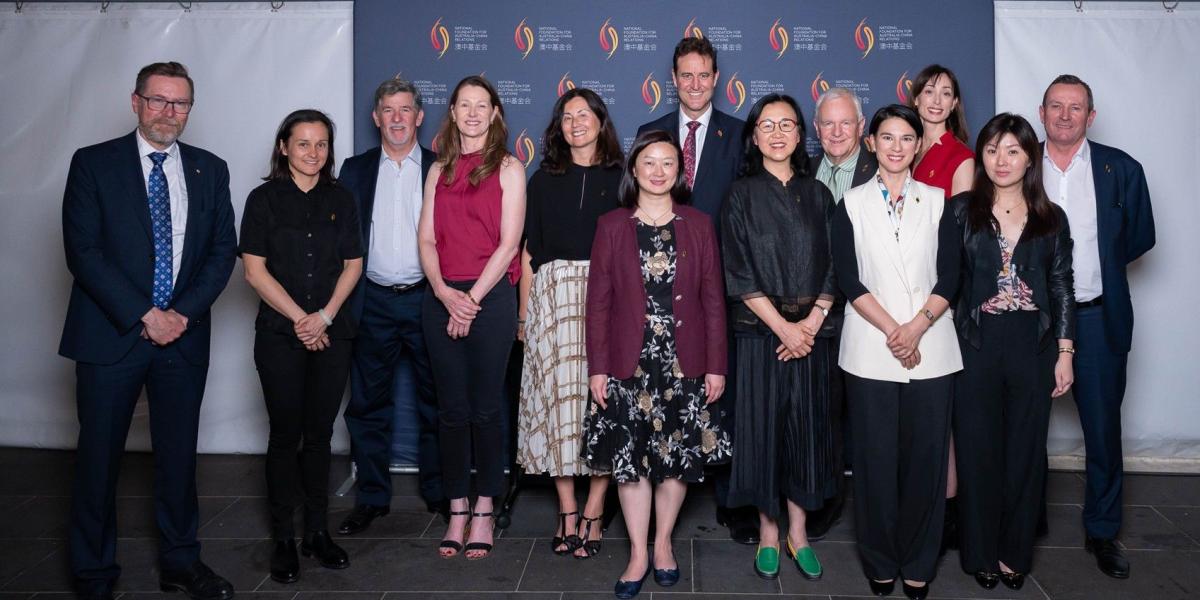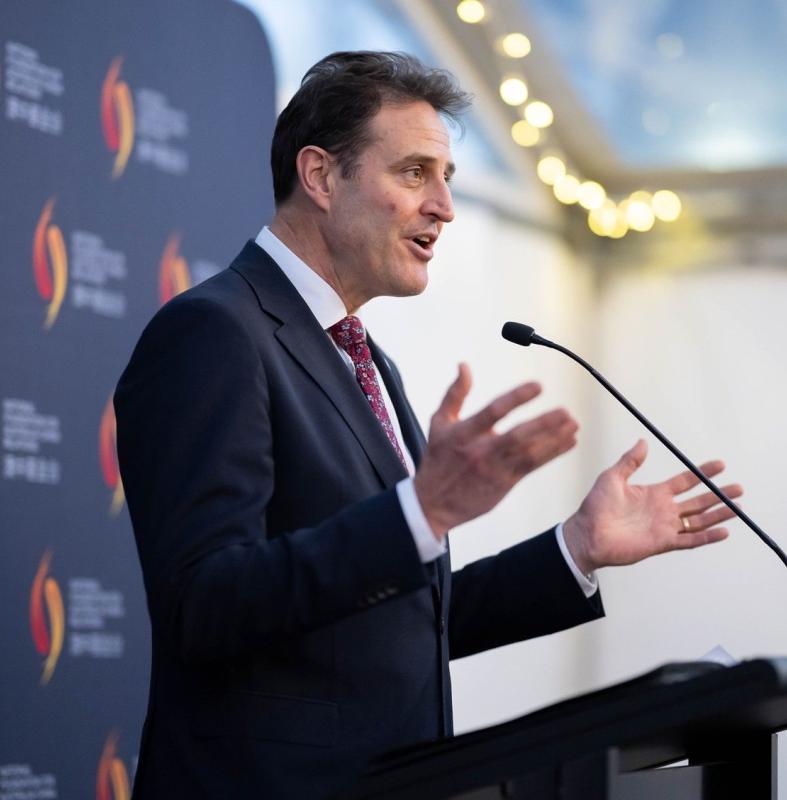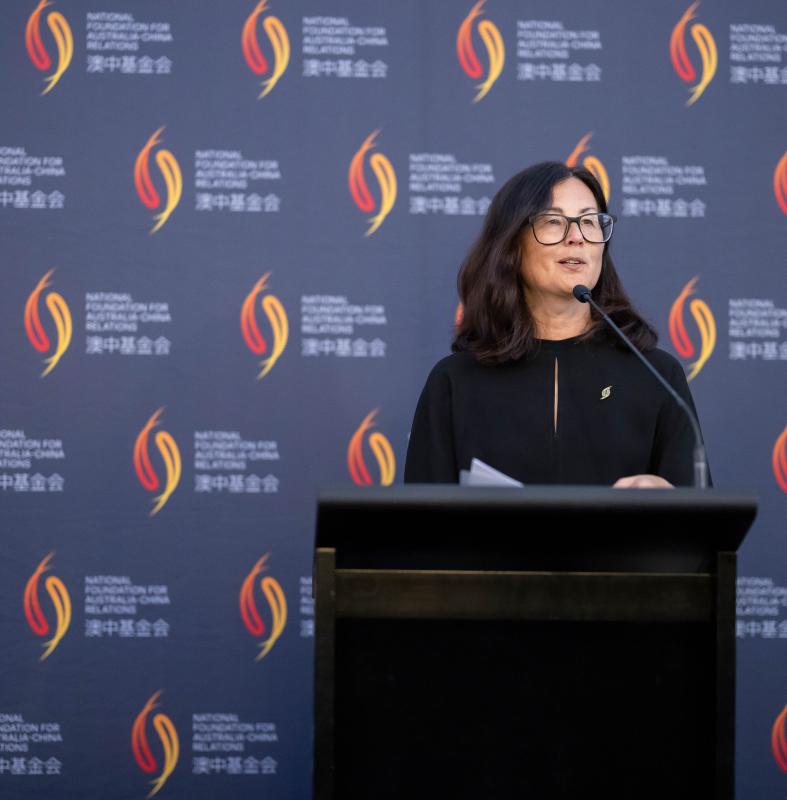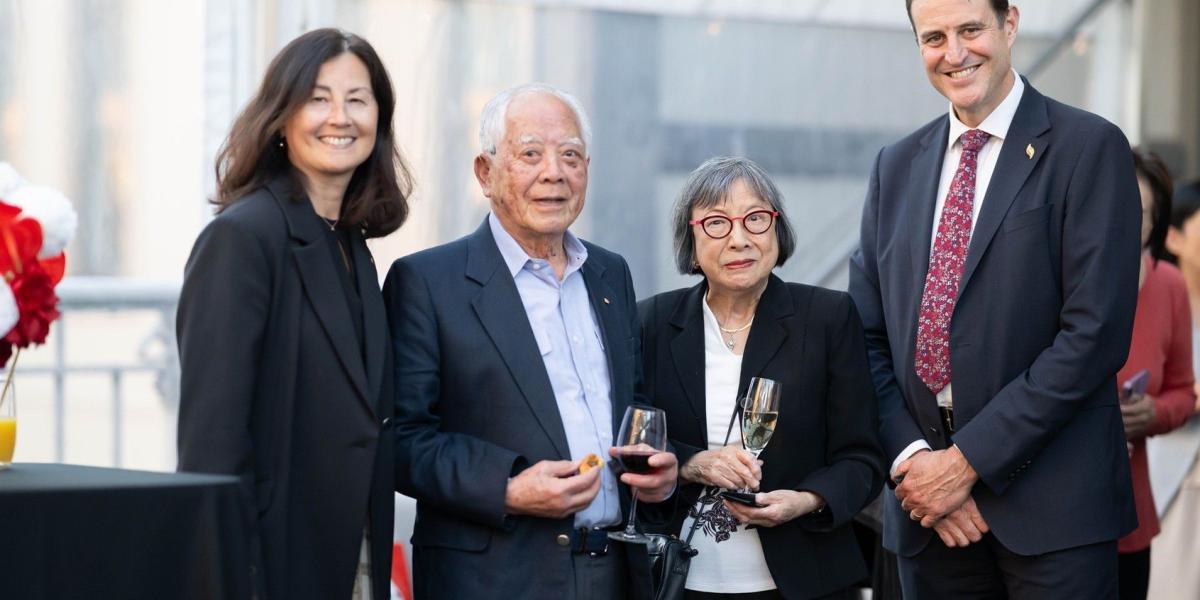Good evening, everyone.
First, let me also acknowledge the traditional custodians of the land on which we meet, the Gadigal of the Eora Nation and recognise other people and families with connection to the lands of NSW and the region.
I would also like to acknowledge attending MPs and all the distinguished friends of the Foundation from government, industry, academia and community. Thank you all for making time to come and join us.
I would like to acknowledge the Foundation’s Advisory Board members who join me here this evening and thank them for their valued support and contributions.
It is a pleasure to join you as Chair of the National Foundation for Australia-China Relations - an organisation I have been part of for two years. I was honoured to accept the invitation of Foreign Minister Penny Wong to lead, taking over from Ms Pru Bennett who ably chaired the Board over the Foundation’s first five years of operation.
Earlier today I chaired my first Foundation Advisory Board meeting. Today’s agenda was an important one – to select the projects which the Foundation will fund through its 2025-26 open and competitive, annual grants round.
It was a lively discussion as this process is becoming more and more difficult each year as the number of applications exponentially grow. This year we received over 500 applications from Australian organisations located all across our vast nation.
I can assure you that every member of the Board takes this process very seriously and feels the weight, the gravitas of how the Foundation’s investment makes a real contribution to strengthening and deepening the Australia-China relationship, in our national interest.
The Foundation is proud to be an enabler for the relationship – to realise its cooperation efforts.
We are a point of differentiation;
Our task is to find productive strands in the relationship where partnerships can be established or deepened.
This includes engaging across all corners of Australian society from government to business and industry, from think tanks to next generation researchers and grass roots community groups.
We are funding projects which enhance exchanges and cooperation in climate change, agriculture, health, education, tourism and sustainable aviation, culture and sport.
All these important fields were outlined in the Statement on Joint Outcomes of the China-Australia Annual Leader’s Meeting in July as priority areas.
The Foundation is also working with Australian Universities to enhance Chinese-international students’ understanding of Australian history and connect with institutions and society.
Looking ahead, we will continue to focus on long-term, high-impact partnerships aligned with our strategic goals and Australia’s national interests.
While supporting practical engagement, it is important that we also invest in Australia’s China capability. An important aspect of this work includes boosting China capability across sub-national government, industry and academia.
I participate on a diverse range of boards across Australian companies and governance bodies, like the Australian Institute of Company Directors. I have seen first-hand the importance of building the risk-informed capability of Australian organisations to engage with mainland China, Hong Kong and Taiwan.
The Foundation’s grants program is supporting Australian peak bodies to build China capability across their membership bases. From next generation barley and wool growers; to senior executives in some of Australia’s largest dairy and seafood export businesses; and Directors on the boards of Australian companies.
Our funding is empowering the Australia China Business Council to deliver capability programs for Australian small and medium sized enterprises and exporters. We are also supporting the Australia-Taiwan Business Association to strengthen important exchanges between emerging industry and business leaders from Taiwan and Australia.
Beyond boardrooms and business hubs, the Foundation is providing important seed funding to build the next generation of Australia’s experts on China. Complementing the New Colombo Plan which funds Australian undergraduate students to study in Asia, we are funding post-graduate students to undertake Chinese language studies and internships in China.
Joining our CEO Gary Cowan, I was honoured to accept the Foreign Minister’s invitation to be a member of the Australian delegation for the Ninth Australia-China High Level Dialogue which took place just two weeks ago in Beijing.
It was my first time attending the High Level Dialogue. I got to see firsthand what this premier track 1.5 dialogue is and why it matters.
I joined a strong delegation of senior leaders from across Australia, all with specialist subject matter expertise on climate change and energy transition, resources, agriculture, education, arts and culture, media and security.
With around 18 delegates on each side, the Australian and Chinese delegations engaged in frank discussions on key areas of engagement across the bilateral relationship.
We agreed to cooperate where we can and disagree where we must. We had robust and pointed conversations about some of the areas of disagreement that are there. The delegation advocated for issues important to every Australian – our national prosperity, security and our national interests.
It was fantastic to see ‘team Australia’ in action at this dialogue.
Australia and China have different political systems. We have therefore different values reflected in those political systems. But we’ve got to be able to engage directly, and that’s what we did through this important platform.
Ongoing dialogue between our two countries is vital – I look forward to supporting the Foundation host this flagship dialogue again next year in Australia and funding other important dialogues at the youth, emerging leader and senior leadership levels.
Showcasing the diverse contributions to Australia by our Chinese-Australian communities and strengthening their voice and agency is a priority for the Foreign Minister and is central to our work.
We empower important storytelling of the contributions made over many generations of Chinese-Australian communities in Australia. These are stories that I feel especially proud to celebrate and share.
One of the Foundation’s signature programs does just that: our flagship Wang Gungwu Lecture. Over the past two years I have had the pleasure of attending our annual Wang Gungwu Lecture, which is televised nationally and in the region and spotlights leadership and excellence within these communities.
The first lecture I attended was delivered by a dear friend of mine and fellow activist for diversity and inclusion - Ming Long. She had a powerful message of belonging, heritage, breaking down bias and legacy.
I am also a passionate advocate for culturally diverse Australians and women. In my capacity as Chair of the Australian 30% Club, as well as continuing to strive for a more equitable representation of women in the highest leadership roles, I am focused on enabling pathways for increased cultural diversity of boards and management teams.
Businesses are better able to serve the needs of their customers and attract the highest calibre of employees when their leadership provides a greater reflection of our increasingly multicultural society.
I was delighted to attend the 2025 Wang Gungwu Lecture earlier this year and hear another great Australian talk about her winning pathway to success – five-time Australian Olympian and diving legend, Melissa Wu. In her guest lecture, Melissa explored the pressures and challenges she faced in her time as an elite athlete and little-known stories from her upbringing and how these shaped who she is today.
Melissa’s story has inspired a generation of young Chinese-Australian athletes to dive in and make a big splash on the world’s sporting stage.
I have personally seen this in action. Last month while I was in Beijing, Gary and I were able to meet the Table Tennis Australia team and even have a hit with incredibly talented, world-winning young players of Chinese-Australian and other Asian-Australian heritage. Seeing our players in action, I was reminded of the power of sports diplomacy.
I, and many of us here tonight stand on the shoulders of such great Australians. Who help us understand ourselves, who help others understand us.
Following the success of the Wang Gungwu lecture, the Foundation is working hard to introduce additional programs supporting emerging Asian-Australian leaders.
These are some of the many reasons why I am so proud to be Chair of the Foundation.
I look forward to engaging with a broad range of stakeholders, to obtain a diverse range of views on how we can work together in support of the Australia-China relationship.
This includes engaging with our Chinese-Australian communities and acknowledging the contributions they have made and continue to make to our vibrant multicultural society.
And to ensuring that Chinese-Australian voices are heard, celebrated and amplified.
Thank you to the many partners and stakeholders across government, business, academia and community who support the work of the Foundation.
Enjoy your evening and thank you for your support as a friend of the Foundation.
This speech was delivered on 1 October in Sydney. Check against delivery.




